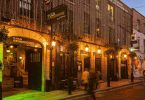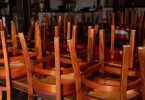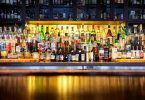‘Smoke & Mirrors’ Budget claim
As a result, the industry actually faces a 7.5 per cent increase in duty due to the alcohol escalator already in place.
Alcohol tax has now increased by two per cent above the rate of inflation, resulting in an increase of almost 7.5 per cent, a situation further compounded by impending price hikes from leading suppliers which, when added to the increase in duty, could see the price of a pint increase by 10 to 15 pence, stated Colin Neill.
“Publicans are now struggling to protect their customers from these rising costs,” he continued, “but with the profit from a £3 pint of beer now only eight pence, down from 23 pence following last year’s Budget, it’s becoming less likely that this can be sustained. This has the potential to drive more people to drink at home, fuelling the problem of the uncontrolled consumption of alcohol and the health-related problems this brings. It is clear that urgent action needs to be taken by both the UK Government and the Northern Ireland Assembly to alleviate the pressure on the trade and to protect the jobs and livelihoods of the thousands of people employed within the industry.”
If the increased tax is passed onto consumers in full, it will add an extra 54 pence to a standard bottle of spirits.
Despite a drop in corporate tax rates there, drinks producers – notably Diageo – have stated that the increased tax on spirits will be “unsustainable”. Diageo pointed out that, “Over 70 per cent of the average retail price of a bottle of Gordon’s gin or Bell’s whisky now consists of tax".
Altogether, the duty on alcohol has been hiked by about a third up from what it was in 2008.
Both the Wine & Spirit Trade Association and the British Beer & Pub Association predict job losses as a result of the latest imposition.
“With close to two million jobs supported by the sector, the Chancellor has missed an opportunity to help it play its part in the UK’s all-important economic recovery,” stated WSTA Chief Executive Jeremy Beadles.

Pint breakdown – who get’s what in the UK beer industry.









